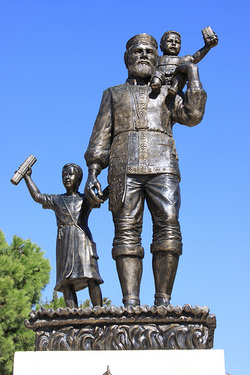
But if you saw your life as a great battle and you knew you needed time with God for your very survival, you would do it. Maybe not perfectly—nobody ever does and that's not the point anyway—but you would have a reason to seek him. We give a halfhearted attempt at the spiritual disciplines when the only reason we have is that we "ought" to. But we'll find a way to make it work when we are convinced we're history if we don't.
Time with God each day is not about academic study or getting through a certain amount of Scripture or any of that. It's about connecting with God. We've got to keep those lines of communication open, so use whatever helps. Sometimes I'll listen to music; other times I'll read Scripture or a passage from a book; often I will journal; maybe I'll go for a run; then there are days when all I need is silence and solitude and the rising sun.
The point is simply to do whatever brings me back to my heart and the heart of God.
The discipline, by the way, is never the point. The whole point of a "devotional life" is connecting with God. This is our primary antidote to the counterfeits the world holds out to us.
This post taken from the book, Wild At Heart by John Eldredge
BE HOLY.
BE A MAN.








 RSS Feed
RSS Feed